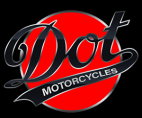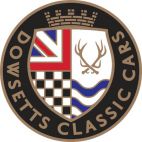
David Brown Automotive is a car manufacturing company, founded by engineering entrepreneur and car enthusiast David Brown. He has no connection to the David Brown whose initials are so closely associated with Aston Martin, although both came from similar types of business background. The company builds a limited number of a handbuilt GT car called the Speedback GT, which is generally acknowledged to have a strong resemblance to the the iconic DB5, thereby emphasising the unusual coincidence between this David Brown and his namesake and their cars. The Speedback GT will be handcrafted to order by the specialist Envisage Group in Coventry, using a Jaguar XJR supplied rolling chassis and powerplant. Early in 2017, the company announced their second model, the Mini Remastered, a highly individual take on the classic Mini. This has now been joined by a performance version called the Oselli Edition.

DJ is a leading racecar constructor in British motorsport, offering the DJ Racecars Firehawk and Firestorm single seaters that have record holding pedigree in MSA British Sprint and MSA British Hillclimb Championships.
The company, originally established in 1998 and since 2009 in its new venture as DJ Engineering Services Ltd, is also a leading name in the design and production of motorsport composite components, supplying a large range of competition use aerofoils, and custom aerodynamic solutions for all levels of motorsport, from sprint racing to Historic F1 and international level GT racing.
The racecars are built at the factory in the High Peak region of Derbyshire, which boasts full in-house capabilities for design, development and manufacture.

Dot Motors Ltd have been recognised since 1903 for the great quality and design of their motorcycles. First founded in the city of Salford near Manchester, by Harry Reed, a pioneer racing motorcyclist and winner of the Isle of Man T.T. in 1908 on a Dot built by himself, beating bigger international manufacturers. The brand was then moved closer to the city centre in Deansgate in 1907, where the old premises are still present today.
The company, that at the time was known as H. Reed and Co. Engineers, ceased in September 1922 and became the original Dot Motors Ltd, with three directors including Harry Reed. Towards the end of the 1940s sporting motorcycle manufacturing restarted, and the first Dot motorcycles designed by Burnard Scott Wade were built and sold. The first Dot “Trials-Scrambler” appeared in 1950, competing and winning in scrambles and trials racings. To be more competitive, Wade knew he had to create a new scrambler with more strength yet lighter features, and it was in 1961 when the new Dot Scrambler, nicknamed the Demon, was launched. By the late ’60s the European and Japanese manufactory competition was getting stronger and in 1978 Dot decided to cease production of motorcycles.
Bringing the Dot story up to date, Dr Anthony Keating and Dr Daniel Keating from Keating Kinetics, with Gary Hewitt and Ian Martin and the owners of the Dot brand, have decided to bring Dot Motorcycles back into market with two new models, the Reed Racer and the Dot Demon. At the NCME National Centre for Motorsport Engineering in Greater Manchester, their engineers have had the pleasure to work with Guy Martin, and with his tacit knowledge of motorcycles and engineering he has shaped the Dot into a superior product.
The company is already working on the creation of new models and for the future, electric motorcycles.

The Dowsetts Classic Car Company is a small British car company based in East Hertfordshire, founded by the TV personality and co "For The Love of Cars" presenter Ant Anstead, along with a team of guys all with a passion for classic cars.
The company designs and hand builds bespoke sports cars taking its inspiration from the evocative designs of the 1950’s and 1960’s British, sports road & racing cars, but harnesses these designs to modern engineering & drivetrain technology.
The work is carried out at its all-new and inclusive site in one purpose built facility. In addition the company also carries out high end classic car restorations and bespoke art and design work.
They have recently revealed their new project, the 6.2 litre Comet fixed-head coupé, for which they are now taking customer commissions.

E-Type UK is a leading Restorer, Servicer, Upgrader and Seller of Jaguar E-Types. Based in Hadlow, Kent, just outside of the M25, E-Type UK has been keeping this iconic marque on the road for the last eight years. Since 2008 they have restored a number of early and important chassis and subsequently serviced these outstanding examples.
Now they have turned their specialised attention to a 'restomod' creation of the last E-Type iteration, the Series 3 V12. Marketed under their new Unleashed brand, the company will produce just ten of these based on the Roadster version, complete with removable hardtop.





